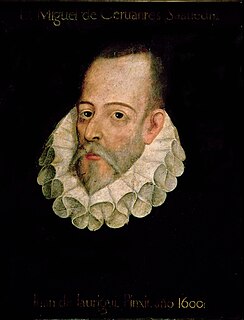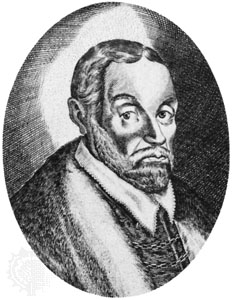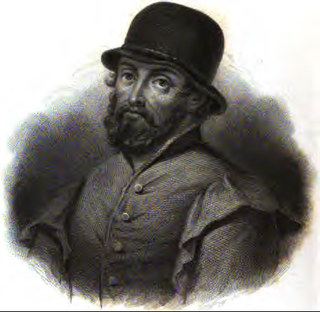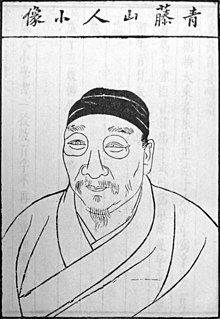 W
WMateo Alemán y del Nero was a Spanish novelist and writer.
 W
WLudovico Ariosto was an Italian poet. He is best known as the author of the romance epic Orlando Furioso (1516). The poem, a continuation of Matteo Maria Boiardo's Orlando Innamorato, describes the adventures of Charlemagne, Orlando, and the Franks as they battle against the Saracens with diversions into many sideplots. The poem is transformed into a satire of the chivalric tradition. Ariosto composed the poem in the ottava rima rhyme scheme and introduced narrative commentary throughout the work.
 W
WAngelo Beolco, better known by the nickname Ruzzante or Ruzante, was an Venetian actor and playwright. He is famous for his rustic comedies, written mostly in the Paduan dialect of the Venetian language, featuring a peasant called "Ruzzante". Those plays paint a vivid picture of Paduan country life in the 16th century.
 W
WMiguel de Cervantes Saavedra was a Spanish writer widely regarded as the greatest writer in the Spanish language, and one of the world's pre-eminent novelists. He is best known for his novel Don Quixote, a work often cited as both the first modern novel, and one of the pinnacles of literature.
 W
WJuan del Encina – was a composer, poet, and playwright, often called the founder, along with Gil Vicente, of Spanish drama. His birth name was Juan de Fermoselle. He spelled his name Enzina, but this is not a significant difference; it is two spellings of the same sound, in a time when "correct spelling" as we know it barely existed.
 W
WGiovanni Battista Guarini was an Italian poet, dramatist, and diplomat.
 W
WSir David Lyndsay of the Mount was a Scottish herald who gained the highest heraldic office of Lyon King of Arms. He remains a well regarded poet whose works reflect the spirit of the Renaissance, specifically as a makar.
 W
WNiccolò di Bernardo dei Machiavelli was an Italian Renaissance diplomat, philosopher and writer, best known for The Prince, written in 1513. He has often been called the father of modern political philosophy and political science.
 W
WLope de Rueda (c.1510–1565) was a Spanish dramatist and author, regarded by some as the best of his era. A versatile writer, he also wrote comedies, farces, and pasos. He was the precursor to what is considered the golden age of Spanish literature.
 W
WHans Sachs was a German Meistersinger ("mastersinger"), poet, playwright, and shoemaker.
 W
WLope Félix de Vega Carpio was a Spanish playwright, poet, novelist and marine. He was one of the key figures in the Spanish Golden Age of Baroque literature. His reputation in the world of Spanish literature is second only to that of Miguel de Cervantes, while the sheer volume of his literary output is unequalled, making him one of the most prolific authors in the history of literature. He was nicknamed "The Phoenix of Wits" and "Monster of Nature" by Cervantes because of his prolific nature.
 W
WXu Wei, other department Qingteng Shanren, was a Ming dynasty Chinese painter, poet, writer and dramatist famed for his artistic expressiveness. Revolutionary for its time, his painting style influenced and inspired countless subsequent painters, such as Bada Shanren, the Eight Eccentrics of Yangzhou, and the modern masters Wu Changshuo and Qi Baishi. Qi once exclaimed in a poem that "How I wish to be born 300 years earlier so I could grind ink and prepare paper for Green Vine " (恨不生三百年前,為青藤磨墨理紙). Xu Wei can be considered as the founder of modern painting in China. His influence continues to exert itself. Despite his posthumous recognition, Xu was manifestly mentally ill and unsuccessful in life, ending his life in poverty after the murder of his third wife and several attempts at suicide.